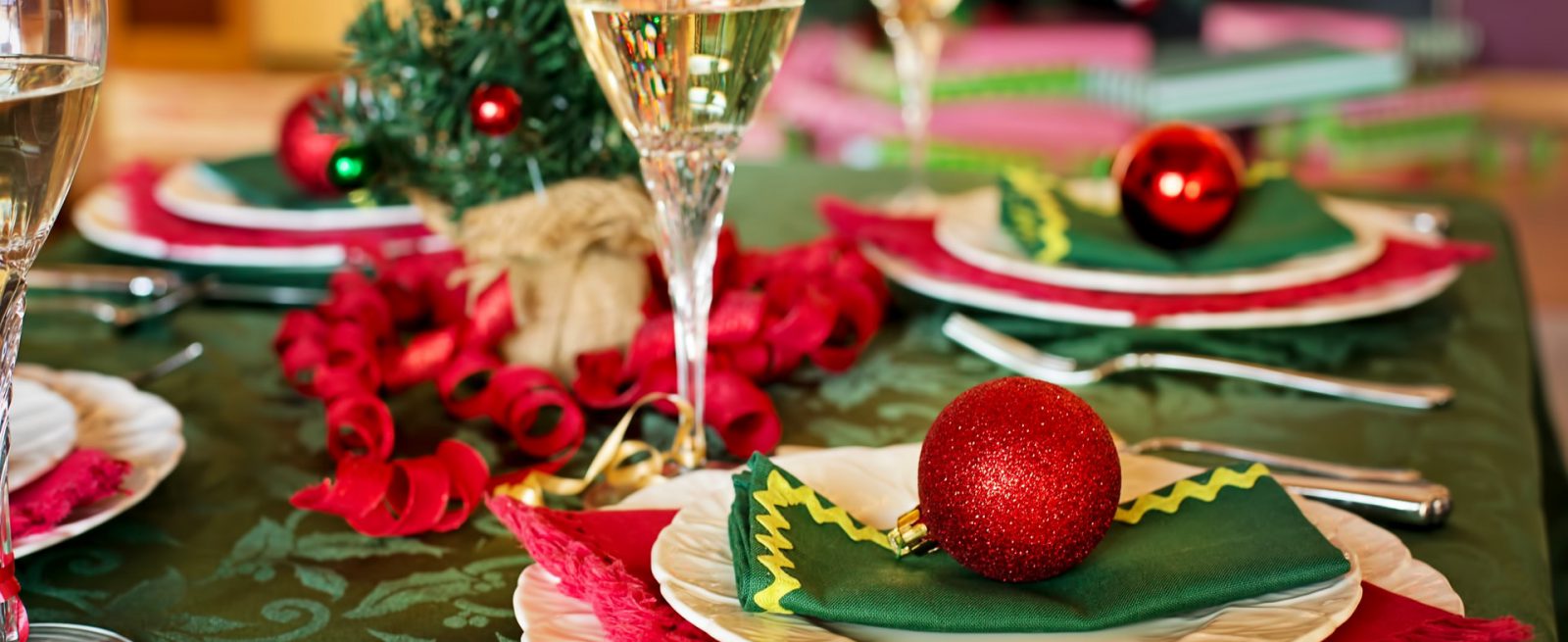Holiday Parties: Best Practices for Hosting Special Events at Your Restaurant This Season
5 Min Read By Michele L. Stumpe, Esq.
Holiday parties are a great way to build revenue at the end of the year. However, potential liabilities can yield devastating results. The biggest concern is over-consumption of alcohol or consumption of alcohol by minors. This year, more than 1,200 people will likely lose their lives during the holiday season as a result of alcohol-related traffic accidents according to the United States Department of Transportation. An additional 25,000 will be injured as a result of alcohol related accidents according to the Centers for Disease Control and Prevention (CDC). Underage drinkers will consume between 10 and 20 percent of the alcohol consumed during the 2017 holiday period.
In most states in the U.S., restaurant owners can be held legally responsible for injuries and damages caused by an intoxicated guest or employee.
(With respect to your own holiday parties, you should also be aware of another area of potential liability related to the “Exclusive Remedy” provision of the Workers’ Disability Compensation Act. While this Act usually protects an employer with respect to work-related injuries, such protection does not apply to injuries “incurred in the pursuit of an activity, the major purpose of which is social or recreational” (i.e. the company holiday party.))
Here are some tips to help protect restaurant owners.
Protecting Yourself from Third-Party Liability
Re-assess your insurance policy. Many general liability policies exclude coverage for events where alcohol is served. Request a policy that includes liquor liability. Remember, liability doesn’t just apply to drunk driving. Try to avoid policies that contain an Assault and Battery exclusion. Consider requiring the client to obtain a special event insurance policy.
Recognize some of the indicators of a higher alcohol consumption event such as type of client, day and time of event, type of event (dinner vs. mixer), entertainment.
Re-visit your alcohol service policies and procedures and remind your employees of policies regarding items such as:
- Drink limits
- Signs of intoxication that warrant slowed or stopped service
- ID checking procedures
- Local happy hour restrictions
- Consumption by employees
- Concealed weapons policy
- Incident reporting – what to do if there is an incident
Train, train, train – make sure your employees are properly trained. Hold refresher sessions that highlight the risks of holiday consumption. Seasonal employees – if you hire seasonal employees, make sure that they have gone through the entire training regimen and signed off on your company’s alcohol policies.
Develop an agreement for clients hosting parties at your restaurant that provides for the following:
- Client agrees to accept responsibility for monitoring alcohol issues and indemnify company for any damages or legal expenses associated with claims filed as a result of intoxicated guests. (Less indemnification = greater need for restaurant/event host imposed restrictions.)
- Limit number of drinks per guest per hour. Remember, the average 150 lb. male will become legally intoxicated after consuming two-to-three drinks per hour (one drink is one ounce of 100 proof liquor, 12 ounces of beer or five ounces of wine.)
- Establish a minimum requirement of non-alcoholic beverages that the client is required to order from your company to insure a variety and surplus of such beverages. Requires alternate transportation to be made available to guests.
Requires the client to circulate a memo to guests advising them:
- to drink responsibly.
- of alternative transportation that will be available.
- that it is illegal for minors to possess or consume alcohol during the event or on your premises.
The agreement also:
- Advises the client in writing that your stall will not serve to people who appear to be intoxicated.
- Requires client to have means of identifying minors.
- Client acknowledges and agrees that alcohol possession or consumption by minors is strictly prohibited – and may result in expulsion from the premises.
- Your restaurant reserves the right to ID everyone.
- Requires the client to hire off-duty law enforcement.
- Requires the client to designate individuals (or security personnel/off duty police officers) who will not be drinking to circulate and identify individuals who appear to be intoxicated so that responsible measures can be taken to insure that any such individual will not be driving.
- Requires the client to have a plan with respect to protocol for alternate transportation of intoxicated guests.
- Limits the period during the party at which alcohol is served, stop alcohol service at least 30 minutes before the party ends and don’t stack drinks. Replenish desserts or encourage a special dessert to be brought out at the end of the event, or some other type of end of event activity to encourage guests to stay around after the bar has closed.
- If the client is providing the alcohol and servers, require that any alcohol servers be trained in responsible sales and service of alcohol.
- Encourage clients to require guests to purchase of alcoholic beverages (as a way of limiting consumption) or use drink limitations (tickets) requiring employees to purchase alcohol beyond the first one or two drinks. People are less likely to over-consume if they are paying for the alcohol.
- If the client is having alcohol donated, make sure they have all necessary licenses.
- Discourage spicy or salty foods that increase thirst, encourage menus that include fatty foods or foods high in starch and protein as these foods stay in the stomach longer and help slow down the absorption of alcohol.
Preventing Disaster at Your Own Company Party
In addition to the recommendations above:
Don’t pay employees while they are at the event or consuming alcohol.
Don’t require employees to attend as a condition of their employment.
Don’t conduct any type of business meetings or work-related matters at the event (before, during or after).
Don’t let employees pour their own drinks, or have employees responsible for serving or mixing drinks. Always hire a third party for alcohol service.
Don’t make the bar the focus of your event – have the bar in a corner or separate room.
Don’t have drinking games or other entertainment that encourages the consumption of alcohol.
Don’t knowingly allow an intoxicated employee or guest to consume alcohol.
Don’t provide alcohol to minors or allow parents to provide alcohol to their children at your event.
Don’t Assume That Dram Shop Liability is the Only Way You Can be Held Liable
Many establishments (and their employees) believe they are protected from liability for serving intoxicated patrons or guests if they don’t think that guest is going to be driving. However, the dram shop laws are not the only avenue for creative plaintiffs. Consider these recent decisions:
Court upholds claim for “negligent eviction” against a bar that had ejected two visibly intoxicated patrons who were later involved in an accident. Penn America Ins. v. Peccadillos, Inc., 2011 Pa. Super. LEXIS 2237; 27 A.3d 259, 2011 PA Super 176 (Pa. Super. Ct., 2011).
Court recognized claim under premises liability/negligent security theory as a result of a fight caused by an intoxicated patron given a history of rowdy behavior at the establishment. Troxel v. Iguana Cantina, LLC, 2011 Md. App. LEXIS 137; 201 Md.App. 476, 29 A.3d 1038 (Md. App., 2011).
In case where patrons brought their own alcohol, and establishment did not serve, court allowed a claim for negligently encouraging consumption and allowing the valet to return his car. Simmons v. Homatas, 2012 Ill. LEXIS 286; 236 Ill.2d 459, 925 N.E.2d 1089, 338 Ill.Dec. 883 (Ill., 2010).
Retailers should also note that several states have started to allow claims against alcohol retailers by at fault drunk drivers for indemnification as well as for their own injuries.


